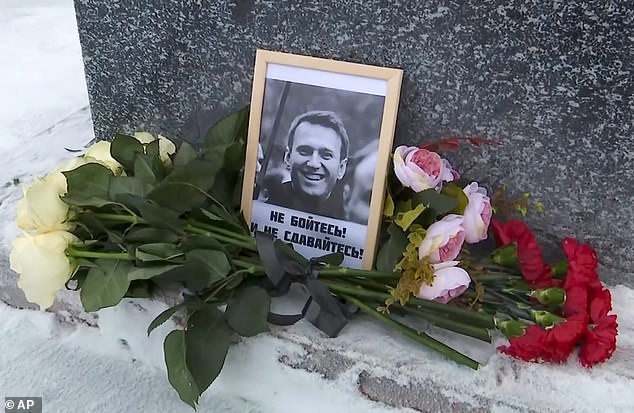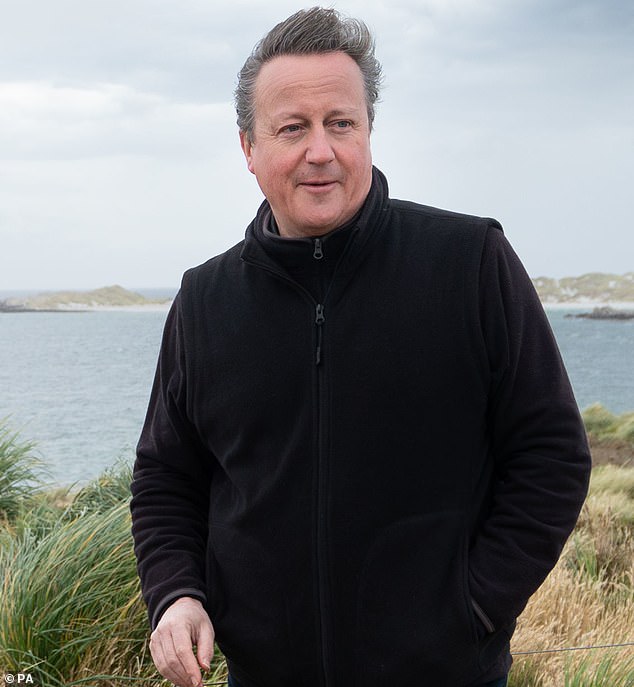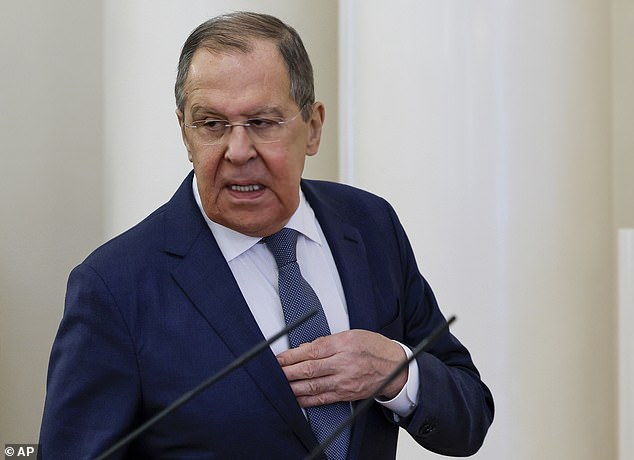Britain slaps sanctions on chiefs of Arctic penal colony where Alexei Navalny was killed as Lord Cameron prepares to confront Russia over Kremlin opponent’s death at G20 meeting
Britain today imposed sanctions on the heads of the Arctic penal colony where Alexei Navalny was murdered.
Those responsible for Mr Navalny’s detention in the brutal prison camp have been hit with asset freezes and travel bans, the Foreign Ministry announced.
It follows the death of the Kremlin’s vocal opponent in the remote IK-3 prison – known as ‘Polar Wolf’ – in the Arctic Circle.
The Foreign Ministry pointed to the barbaric treatment of Mr Navalny, who spent his life exposing corruption by Vladimir Putin’s regime while held as a political prisoner.
He was held in solitary confinement for up to two weeks at a time, denied medical treatment and forced to walk in -32 degrees Celsius while held in the penal colony.
Britain is the first country to impose sanctions following Navalny’s death.
It comes ahead of a likely showdown between Foreign Secretary David Cameron and his Russian counterpart at a G20 meeting in Rio later today.
Senior Conservative MP Alicia Kearns warned that the action Britain is taking in response to Navalny’s murder is not yet strong enough.
‘We have to go further than this. A lot further,” said the chairman of the House of Commons Foreign Affairs Committee in response to today’s sanctions.
Britain has imposed sanctions on the heads of the Arctic penal colony where Russian opposition leader Alexei Navalny was murdered

Mr Navalny is said to have fallen unconscious and died suddenly on Friday after walking through the penal colony where he was serving a 30-year prison sentence.

The sanctions were announced ahead of a likely confrontation between Foreign Secretary David Cameron and his Russian counterpart at a G20 meeting

Lord Cameron will attend the Brazil summit where he will meet Russian Foreign Minister Sergei Lavrov
Lord Cameron said: ‘It is clear that the Russian authorities saw Navalny as a threat and repeatedly tried to silence him.
“FSB agents poisoned him with Novichok in 2020, imprisoned him for peaceful political activities and sent him to a penal colony in the Arctic.
‘No one should doubt the oppressive nature of the Russian system.
“That is why today we are imposing sanctions on the top prison officials responsible for his detention in the penal colony where he spent his final months.
“Those responsible for Navalny’s brutal treatment should have no illusions; we will hold them accountable.”
Navalny, 47, is said to have fallen unconscious and died suddenly on Friday after walking through the penal colony where he was serving a 30-year prison sentence.
Western countries and Navalny’s supporters have said Putin is responsible for Navalny’s death.
But the Kremlin has denied involvement, saying claims that the Russian president was responsible are unacceptable.
The Ministry of Foreign Affairs named six sanctioned persons Colonel Vadim Konstantinovich Kalinin, the head of the penal colony ‘Polar Wolf’, as well as five deputy heads Sergey Korzhov, Vasily Vydrin, Vladimir Pilipchik, Aleksandr Golyakov and Aleksandr Obraztsov.
The six men have now been banned from Britain and subject to an asset freeze, preventing British companies and individuals from doing business with them.
Lord Cameron will attend the G20 foreign ministers meeting in Brazil today, where he will meet Russian Foreign Minister Sergey Lavrov.
He will condemn Putin’s ongoing war in Ukraine and emphasize the need for countries to adhere to the rules-based international order when he speaks at the Rio summit.
The Foreign Minister said: “We must adapt international rules and institutions to the challenges we face today. This means that the rules-based international order must be reformed, not destroyed.
‘The Kremlin pays lip service to concepts such as sovereignty, but openly undermines them. Unlike Russia, we link our words to actions.’
Britain had already imposed sanctions on 13 people in response to Navalny’s Novichok poisoning in 2020.
